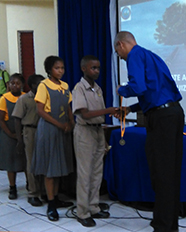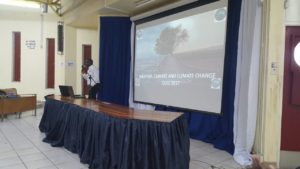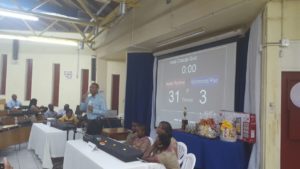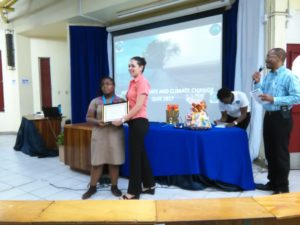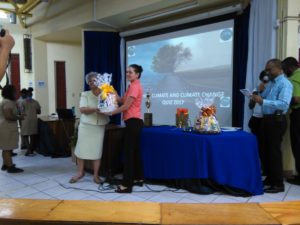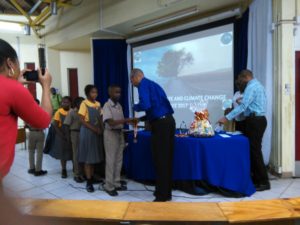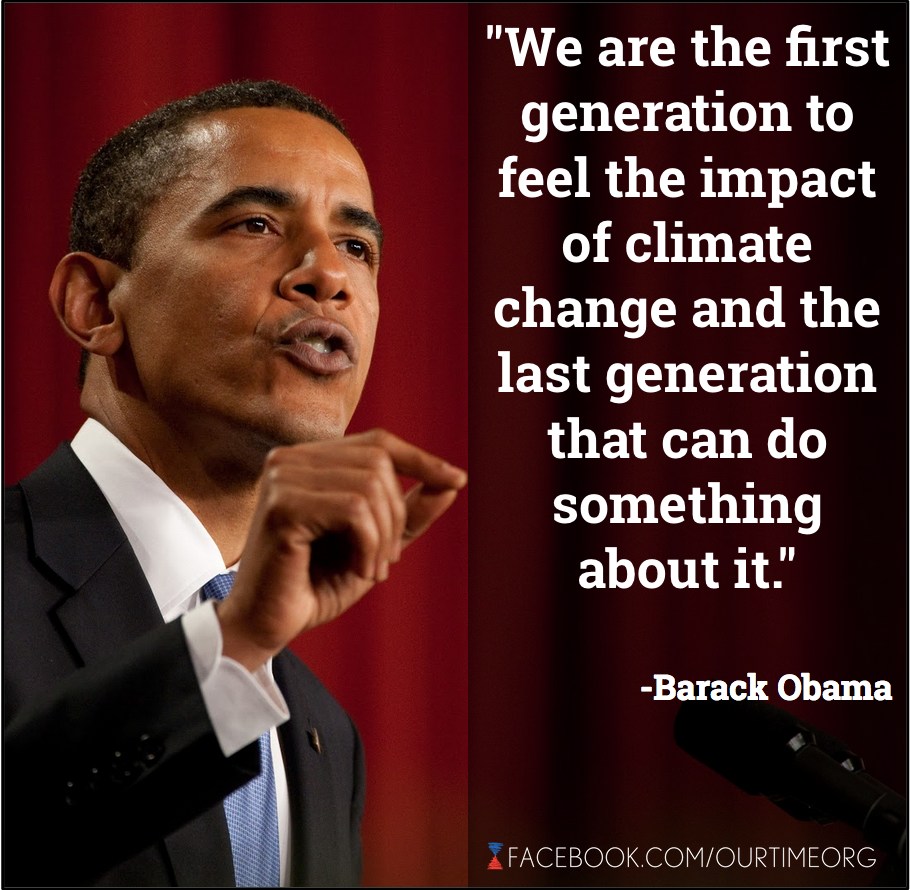ESL served as judges and quiz-master for “Weather, Climate and Climate Change 2017 Quiz Competition.” We also sponsored the second place prize which is a 1,000 gallon water tank.
The Weather, Climate and Climate Change Quiz targets primary and preparatory school students in grades four and five, who competed for prizes including a renewable energy solution.
Main sponsors included:
The Improving Climate Data and Information Management Project (under the Pilot Programme for Climate Resilience, PPCR), Jamaica Public Service Company Limited, Climate Change Division, University of the West Indies, Sole Distributors and the Forestry Department.
Partners included:
Environmental Solutions Ltd., National Environment and Planning Agency, Water Resources Authority and the Heart Trust-NTA Youth Services Division
Youth need to be in the know where climate change is concerned. Though climate change information is more readily available, not many children are exposed to or see the need to access this information. Hence, the Meteorological Service saw the need to bring this information to the forefront of the minds of these children, our future generation. In doing this the Meteorological Service will play a pivotal role in equipping this generation with the tools that will aid them in dealing with the challenges that will arise from climate change. Thus, the Weather, Climate and Climate Change competition was conceptualized and implemented to meet these needs.
The first event of this kind was held in May 2015 and was deemed a success. The Meteorological Service saw that competitions of this nature could play a key role in keeping the youth informed and equipping them with the tools to survive in an ever changing climate. These tools, including knowledge, will result in our children being empowered to become environmental stewards and will enable them to make better environmental decisions. Additionally, this will result in the transfer of knowledge to parents and members of the communities, culminating in an increased awareness of future climate risks which would enable all stakeholders to account for environmental/climate risks in their decision making.

